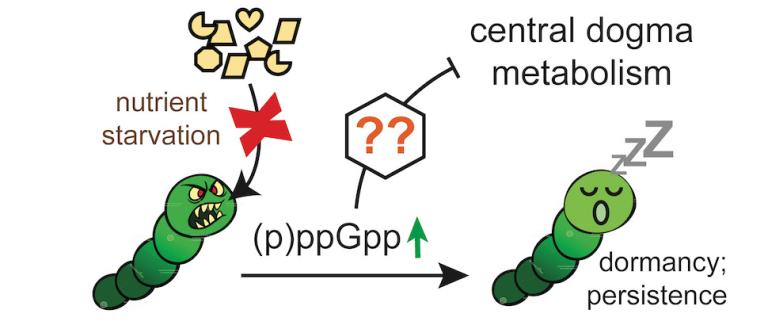The Wang Lab is particularly interested in (p)ppGpp, a universally conserved, starvation-induced nucleotide messenger, and how it guides bacteria to a "safe mode," characterized by slow growth and enhanced antibiotic persistence.
We are also developing new approaches to:
- Identify metabolite-binding RNA elements
- Generate semi-synthetic proteins in living bacteria.

When pathological bacteria are deprived of nutrients, levels of the nucleotide messenger (p)ppGpp increase and the bacteria (1) divert resources away from growth and division and (2) enhance resilience against multiple stress conditions.
(p)ppGpp Signaling
The ability to produce (p)ppGpp when needed is required for persistent infections of many pathogens, but many aspects of its signaling remain puzzling. The Wang Lab focuses on identifying targets and mechanisms of (p)ppGpp signaling.
Explore (p)ppGpp SignalingRiboswitches
Riboswitches – short segments of mRNA that bind to small molecules and cause a change in expression of proteins coded by the RNA – allow protein expression to self-regulate. We will use photo-crosslinking probes to capture metabolite-binding RNA for analysis by Illumina sequencing.
Explore RiboswitchesProtein Semi-Synthesis in Bacteria
We are interested in implementing the protein semi-synthesis approach in major model bacterial organisms other than E. coli.
Explore Protein Semi-Synthesis in Bacteria